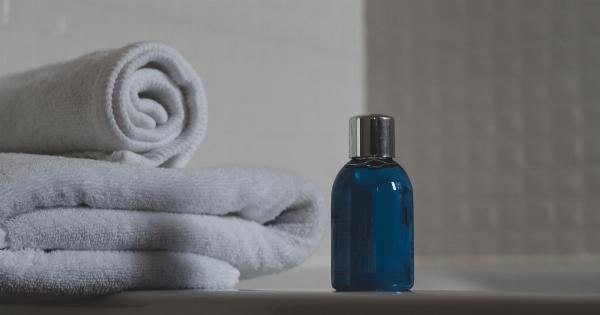Summer brings along endless possibilities for outdoor activities, fun in the sun, and a chance to unwind. However, the warmer months can also pose unique challenges for maintaining vaginal health.
From increased humidity to swimming in pools or the ocean, it is important to take certain precautions to keep your vagina healthy during this time of the year. In this article, we will explore some essential tips and information to help you protect your vagina this summer.
1. Stay Hydrated
As the temperatures rise, it is crucial to keep yourself well-hydrated to maintain overall health. Drinking an adequate amount of water can also help prevent vaginal dryness, which can occur due to dehydration.
When your body lacks hydration, it can impact the moisture levels in the vagina as well. So, make sure to drink plenty of water to keep your body and vagina properly moisturized.
2. Wear Breathable Underwear
Choosing the right underwear is essential for maintaining vaginal health during the summer. Opt for breathable fabrics like cotton that allow proper air circulation, reducing the risk of excessive sweating and moisture buildup.
Avoid synthetic materials as they can trap heat and moisture, creating an ideal environment for bacterial growth.
3. Change Out of Wet Bathing Suits
After a refreshing dip in the pool or the ocean, it is important to change out of your wet bathing suit as soon as possible. Lingering in a wet swimsuit can create a damp environment, increasing the chances of bacterial and yeast infections.
Change into dry clothes or wrap yourself in a towel to promote proper airflow and keep your vaginal area dry.
4. Practice Safe Intercourse
Summertime often means vacation romance and new encounters. While enjoying your time, it is crucial to prioritize safe intercourse.
Unprotected sex can lead to sexually transmitted infections (STIs), which not only harm your overall health but can also have negative consequences for your vaginal well-being. Use condoms consistently and communicate openly with your partner about sexual health.
5. Avoid Strong Cleansers or Douching
When it comes to vaginal hygiene, less is more. Avoid using strong cleansers or douching products, especially during summer. These products can disrupt the natural pH balance of your vagina, making it more susceptible to infections and irritation.
Instead, clean the external genital area with mild, unscented soap and warm water. The vagina has self-cleaning mechanisms, and excessive washing can do more harm than good.
6. Be Mindful of Public Restrooms
Using public restrooms is often inevitable, especially when you’re out and about during your summer adventures. However, it is essential to be mindful of proper hygiene practices in these facilities.
Always wipe the toilet seat before using it and consider using a toilet seat cover if available. Try to avoid direct contact with the surfaces and wash your hands thoroughly after using the restroom.
7. Choose the Right Swimwear
The type of swimwear you choose can also impact your vaginal health. If you are prone to infections or irritation, consider wearing swimsuits with a cotton lining. Lycra or spandex blends may trap moisture, leading to discomfort or yeast infections.
Additionally, opt for well-fitting swimwear that allows for proper ventilation and doesn’t cause unnecessary friction in the genital area.
8. Stay Cautious in Hot Tubs and Jacuzzis
Soaking in a hot tub or jacuzzi may be tempting during the summer, but it is important to exercise caution. Hot water can disrupt the natural balance of your vagina, potentially leading to inflammation or infections.
Limit your time in hot tubs, and if possible, opt for a quick shower afterward to wash away any potentially harmful bacteria.
9. Maintain Good Personal Hygiene
Keeping up with good personal hygiene is crucial for protecting your vagina during the summer. After each bowel movement, always wipe from front to back to prevent bacteria from the anal area from spreading to the vagina.
This practice helps reduce the risk of urinary tract infections (UTIs) and other vaginal infections.
10. Listen to Your Body
Above all, listen to your body. Every person’s body is unique, and what works for someone else may not work for you. Pay attention to any changes or discomfort you may be experiencing and consult a healthcare professional if you have any concerns.
Self-awareness and proactive care are essential for maintaining optimal vaginal health.





























